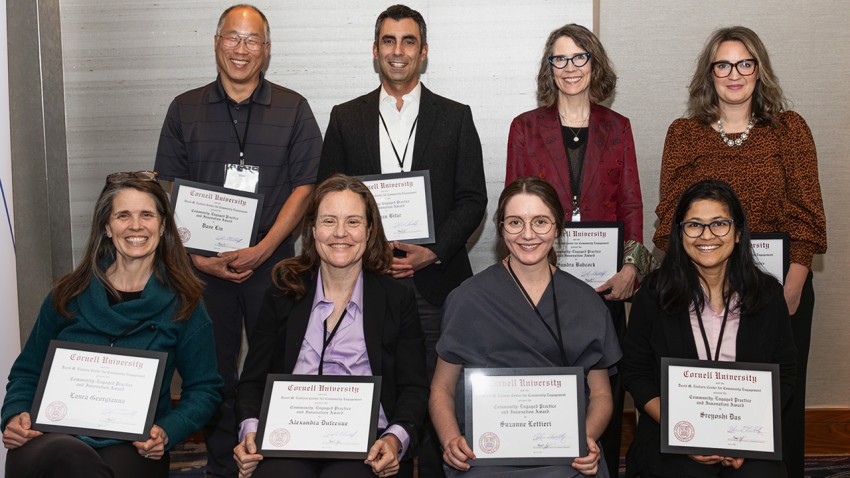Zhiru Zhang, Niansong Zhang, and Hongzheng Chen receive Best Paper Award at the International Symposium on Field-Programmable Gate Arrays
Zhiru Zhang and his students, Niansong Zhang and Hongzheng Chen, received the Best Paper Award at the International Symposium on Field-Programmable Gate Arrays for their work "Formal Verification of... Read more about Zhiru Zhang, Niansong Zhang, and Hongzheng Chen receive Best Paper Award at the International Symposium on Field-Programmable Gate Arrays


.png
)

.png
)